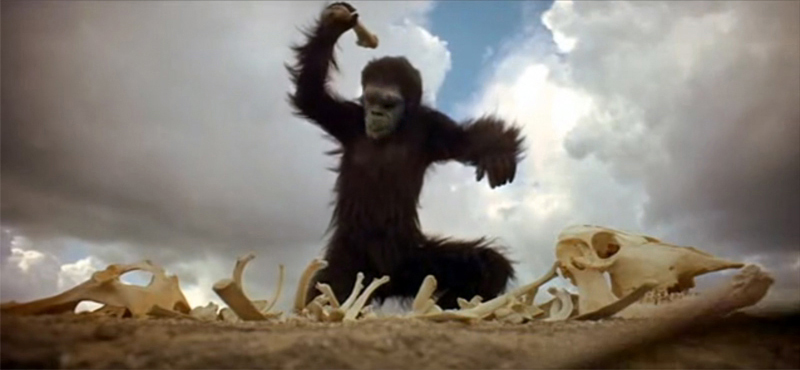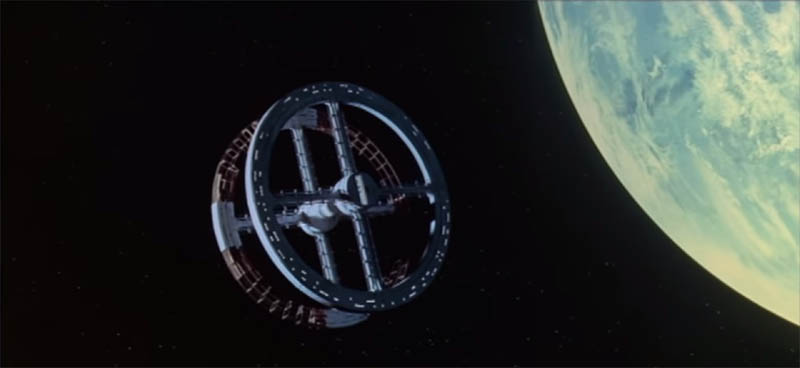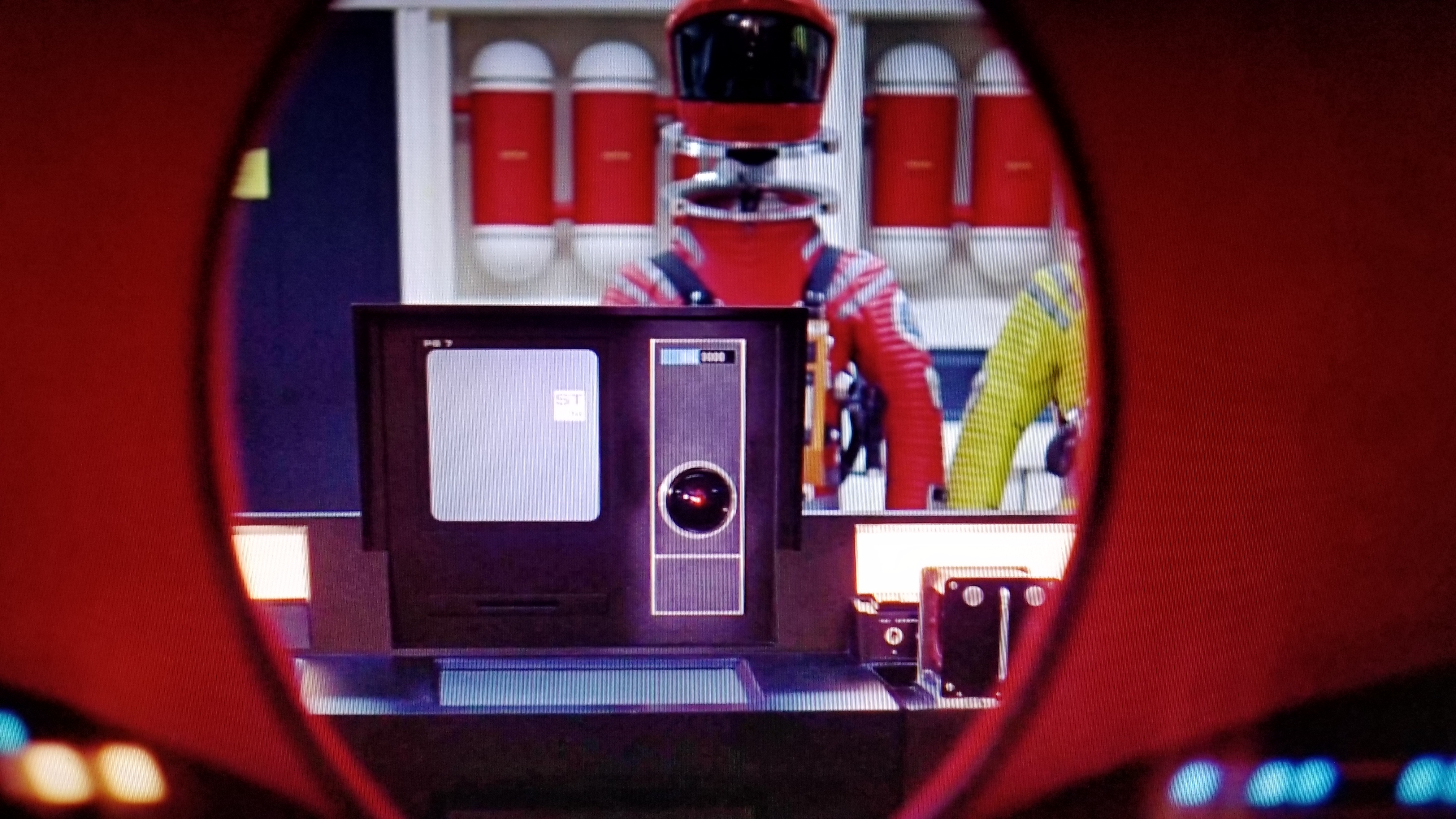
A few months ago, my 11 year old son asked if he could watch “that movie with HAL”. He was referring to the 1968 Stanley Kubrick classic 2001: A Space Odyssey.
“I don’t think you’d enjoy 2001,” I replied, even though I consider it one of the greatest films of all time. I thought it’d challenge his attention span; after all, this is a movie that takes its time getting anywhere and explains very little along the way. And the shots are long. So, so long. Kids these days! They don’t have the attention span for long shots.
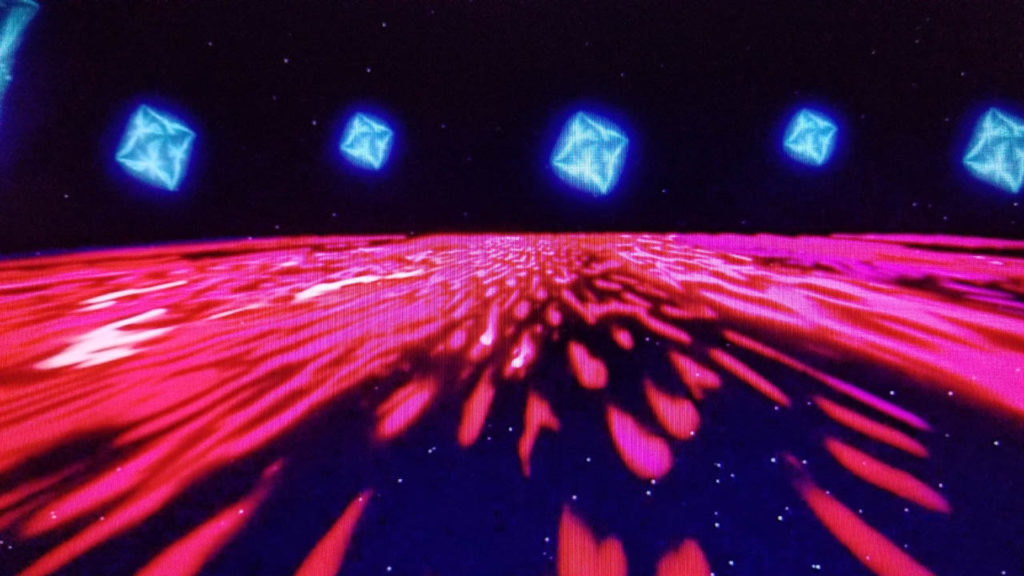
But the other night he insisted on a movie night with his family. And when your kid, on the cusp of becoming a cranky teenager asks for a movie night with his family, you do not turn him down. I asked what he wanted to watch. “Cars 3?” No, not on video. Not until November, I informed him.
He then insisted. “I want to watch 2001!”
Just to reiterate: we’ve gone from Cars 3 to 2001: A Space Odyssey, within the firing of a few neurons. Ka-Chow!
Meanwhile, back in the ’70s…
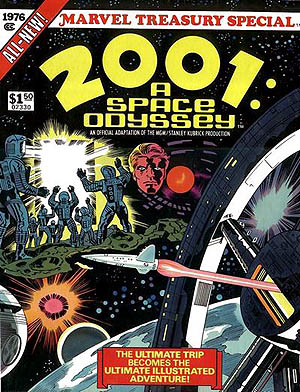 Now’s the part where I include an annoying flashback sequence.
Now’s the part where I include an annoying flashback sequence.
I was born in 1968, the same year that 2001: A Space Odyssey was released. My dad was a huge admirer of the film; I don’t recall the specific moment when he made me aware of it, but I remember that several years later 2001 was going to be broadcast on TV (the only way you could watch stuff when we were kids), and he urged me to watch it with him. I found it absolutely fascinating. In 1976, Marvel Comics issued a giant-sized comic version of 2001 illustrated by Jack Kirby, which I read from front to back dozens of times. The comic, and the Arthur C. Clarke novel, combined to plug the huge gaps in my understanding of the movie.
So now my son was insisting on watching 2001. Well, why not? He’s a big fan of other thoughtful, grounded science fiction like The Martian, Arrival, Contact, and Interstellar. So despite my reservations, I fetched a digital copy of 2001: A Space Odyssey in HD from the Windows store, pressed Play, and we settled in.
The Movie Rolls
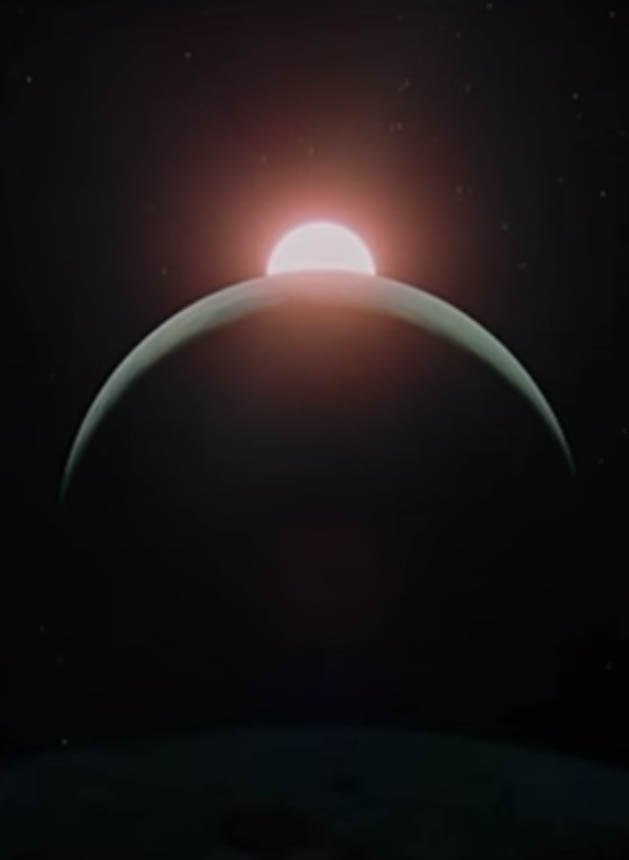 Another revelation: I’ve never seen 2001 the way it was meant to be seen (in a theater, duh). I’d only ever seen it on TV: a crappy, washed-out, 480i NTSC broadcast with a 4:3 aspect ratio. Now, I have a decent mid-range home theater projector that is more faithful to the look and tone of actual film, and also conveys the full-frame 16:9 picture. The difference was night and day, or should I say, “Dawn of Man” vs. “Stargate”. Throughout the movie, the colors were more vibrant, more exciting, and more awe-inspiring than I ever knew possible. I could see why Dad and his generation fell in love with it.
Another revelation: I’ve never seen 2001 the way it was meant to be seen (in a theater, duh). I’d only ever seen it on TV: a crappy, washed-out, 480i NTSC broadcast with a 4:3 aspect ratio. Now, I have a decent mid-range home theater projector that is more faithful to the look and tone of actual film, and also conveys the full-frame 16:9 picture. The difference was night and day, or should I say, “Dawn of Man” vs. “Stargate”. Throughout the movie, the colors were more vibrant, more exciting, and more awe-inspiring than I ever knew possible. I could see why Dad and his generation fell in love with it.
The Dawn of Man sequence, far from being BORING to an 11 year old mind as I feared, was in reality a riveting visual tale of struggle, survival, dominance, and death. I anticipated having to explain the appearance of the Monolith, how it drew our early ancestors to it, and how it resulted in their uplift. But my boy was ahead of me. The only question I had to answer definitively was that no, these were NOT animals, these were actors (specifically, mimes) in costume.
We transitioned to the Space Waltz sequence, which is awesome no matter how old you are, and probably the reason 99% of us know Strauss’ Blue Danube. We eventually journeyed with Heywood Floyd through the fiction of the “outbreak” and on to the moon, indulging in the lush, colorful, and striking sets and visual effects.
It was sometime around this point that I realized — and remarked — that the film was almost 50 years old. My son was blown away. “Oh my god!” he said. “I thought this movie was way more recent!”
No, dude, this film is as old as I am, but way better-looking.
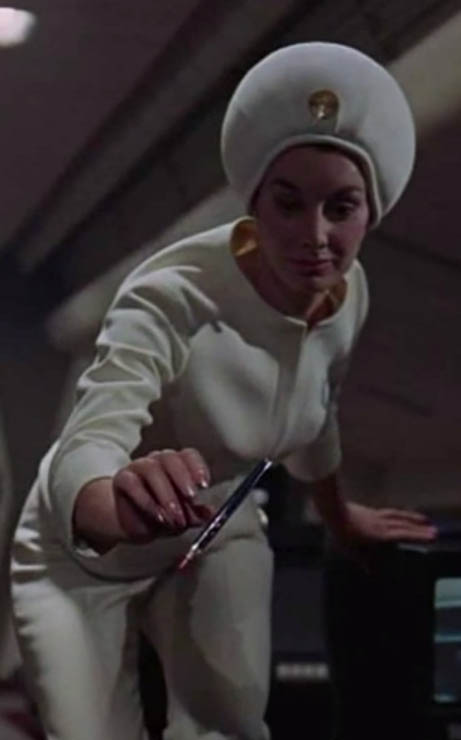 We continued to watch 2001 in relative quiet. Occasionally I’d plant little seeds of insight or explanation into the story, but he had a few observations along the way. I remember “Why is she (the flight attendant) wearing that thing (a silly white ball) on her head?” on the way to Space Station V. (I theorized it was for head protection in a weightless environment, but I suspect the real reason is so they didn’t have to figure out how to recreate the effects of weightlessness on long hair.) There was a snarky “Why would anyone build a space station and not finish it?” and a more awed “It must have taken a long time to build that place” when Floyd’s moon lander arrives at Clavius, and is swallowed up into the cavernous landing bay beneath.
We continued to watch 2001 in relative quiet. Occasionally I’d plant little seeds of insight or explanation into the story, but he had a few observations along the way. I remember “Why is she (the flight attendant) wearing that thing (a silly white ball) on her head?” on the way to Space Station V. (I theorized it was for head protection in a weightless environment, but I suspect the real reason is so they didn’t have to figure out how to recreate the effects of weightlessness on long hair.) There was a snarky “Why would anyone build a space station and not finish it?” and a more awed “It must have taken a long time to build that place” when Floyd’s moon lander arrives at Clavius, and is swallowed up into the cavernous landing bay beneath.
Just What The HAL Is Going On?
At this point, there’s been a lot of movie, but no HAL, and the boy asked, somewhat confused “Is this the movie with HAL?” I explained that yes, this was the movie with HAL-9000, and we’d be getting to that part before much longer. There was much rejoicing.
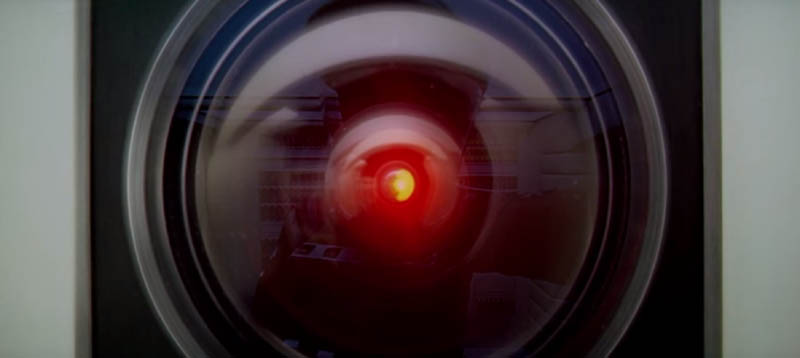
At long last, we’re introduced to the Discovery and her crew, along with the AI who is practically perfect in every way. I could see my son absorbed in the beautiful sets of the ship, the depiction of day-to-day life for the astronauts, and the design of the spacecraft itself. He observed, and I had to admit, that Frank Poole’s morning workout that included air-boxing seems comical in retrospect, but other than that, no element on board the Discovery comes across as dated.
The boy didn’t say a whole lot during the Discovery sequence. HAL himself, with his creepy, quiet, whispery, monotone, proved as fascinating as he expected. I can’t recall any notable remarks, apart from a slight giggle when HAL started to sing Daisy during his deactivation sequence.
Discovery reaches the monolith at Jupiter, Dave Bowman sets out to investigate, and to my surprise, my son actually sits through the interminably long Stargate sequence, offering only a “Trippy” remark near its beginning.
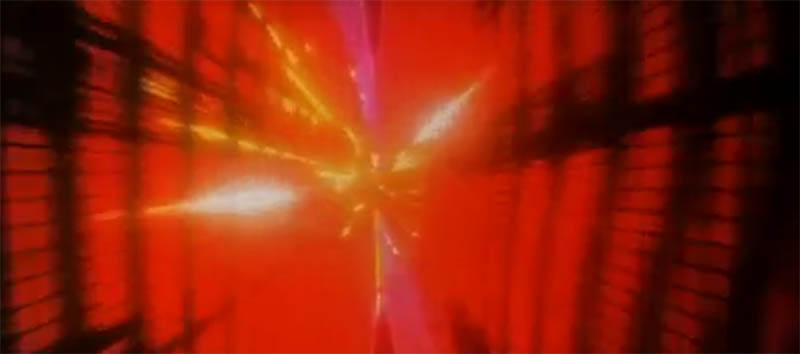
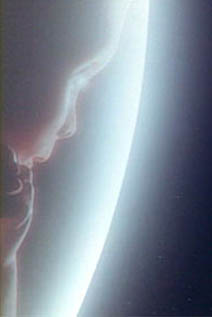 At the conclusion of the journey, he’s a bit confused about why Dave Bowman is shaking and shivering in his pod, sitting in this grand bedroom. But he’s engrossed as Bowman watches himself settle in, live to a ripe old age, and “die” in his bed. He gets it. All of it. Right up until the Star Child is born and approaches earth. And this was his one serious WTF moment. “Wait, what? Okay… so he got old… and died… and now he’s a fetus?”
At the conclusion of the journey, he’s a bit confused about why Dave Bowman is shaking and shivering in his pod, sitting in this grand bedroom. But he’s engrossed as Bowman watches himself settle in, live to a ripe old age, and “die” in his bed. He gets it. All of it. Right up until the Star Child is born and approaches earth. And this was his one serious WTF moment. “Wait, what? Okay… so he got old… and died… and now he’s a fetus?”
I laughed and said “I’m sure at this point, you have a lot of questions.”
Indeed he did, and I told him that a few of those would be answered in the sequel 2010: The Year We Make Contact, which we started watching immediately. He enjoyed that movie also.
So, the takeaway? I’m not going to underestimate my son again. Thanks to his persistence, I got to enjoy 2001 with my son, the way my dad watched it with me. May this movie keep the father-son bond alive until 3001 and beyond.
Thank you, Arthur C. Clarke and Stanley Kubrick!

